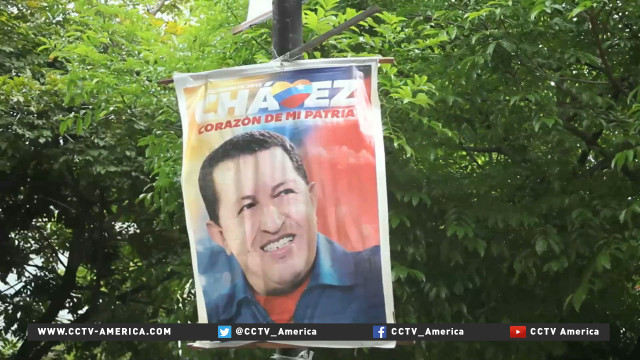Venezuela’s economic crisis is stirring fears beyond its borders. Long dependent on subsidized fuel from Venezuela, Caribbean nations are now considering new sources for energy. CCTV’s Martin Markovits reported this story from Caracas, Venezuela.

US urges Caribbean nations to exit Venezuela\'s Petrocaribe oil subsidy program
Venezuela's economic crisis is stirring fears beyond its borders. Long dependent on subsidized fuel from Venezuela, Caribbean nations are now considering new sources for energy. CCTV's Martin Markovits reported this story from Caracas, Venezuela.As Venezuela teeters toward default, the U.S. is pushing Caribbean nations to leave a trade program launched by the late Venezuelan President Hugo Chavez and look into alternative energies.
“And an integrated North America working to promote energy security beyond our borders can be a major asset for the entire hemisphere. It’s profoundly in the self-interest of the United States to see the Caribbean countries succeed,” U.S. Vice President Joe Biden said.
Venezuela has subsidized more than 100,000 barrels a day as part its PetroCaribe program that allows members from a number of Caribbean and Central American nations to only pay a small part of the cost for oil up front, and they can use anything from jeans to beans to pay for it.
While the bartering program was an important diplomatic tool for the late Chavez, it has meant less cash reserves for Venezuela. It’s a program that poor nations depend on greatly, analysts said.
“The reason to maintain the program is integration and solidarity with these countries. Even though oil prices are falling, they are still economically weak and need energy,” oil expert Rafael Quiroz said.
Oil prices have halved since September worsening shortages of consumer goods and spiraling prices within Venezuela.
While the Venezuelan government has insisted Petrocaribe will continue, many have their doubts now that the country is strapped for cash and say the program is unsustainable.
“It’s money that Venezuela now needs. It’s a cost of $1.5 billion that Venezuela could use to import medicine. Things that are in short supply in the country like food, cooking oil and diapers,” Luis Oliveiros, Metropolitan University economist said.
 CGTN America
CGTN America
